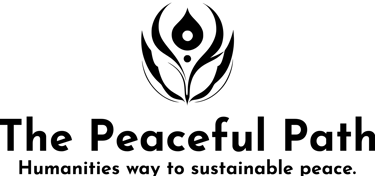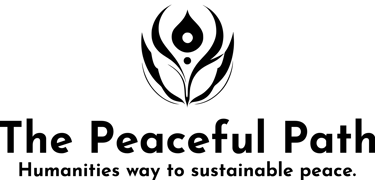Breaking the Cycle
How Understanding Transgenerational Trauma Can Transform Leadership
Julia Dencker
8/13/20244 min read


As a leader, have you ever considered that the way you approach decision-making, conflict resolution, or even your daily interactions might be influenced by more than just your own experiences? The impact of transgenerational trauma—unresolved emotional wounds passed down from one generation to the next—can shape our leadership styles in ways we might not even realize.
The Concept of Transgenerational Trauma
The concept of transgenerational trauma was first academically recognized in the late 20th century. It gained significant attention in the 1990s through the work of researchers like Dr. Rachel Yehuda, who studied the descendants of Holocaust survivors. Her research revealed that trauma could be inherited through changes in DNA expression, known as epigenetics, which influence how individuals respond to stress and adversity. Since then, the field has expanded, with numerous studies exploring how the traumas of previous generations can impact the psychological and emotional well-being of their descendants.
For instance, a recent study by Yehuda et al. (2019) found that children and grandchildren of Holocaust survivors exhibited stress responses and emotional patterns similar to those of their ancestors, even though they had not directly experienced the trauma. This groundbreaking research suggests that the emotional and psychological experiences of our ancestors can influence our behaviors and responses today.
However, not all researchers agree on the extent of this impact. A 2021 review by Serpeloni et al. argued that while genetic inheritance plays a role, environmental factors and family dynamics are more significant in the transmission of trauma. This perspective emphasizes that the way trauma is expressed and managed within a family environment may have a more substantial impact than the genetic transmission alone.
My Leadership Journey
In my own leadership journey, I’ve often reflected on how my upbringing, particularly the influence of my mother, who was in managing positions all my life, has shaped the way I lead. My mother was a strict, direct, and brutally honest figure, and these traits have undoubtedly influenced my leadership style. However, I've also come to recognize that some of the more challenging aspects of my leadership—such as a tendency to be overly critical or to push myself and my team too hard—may stem from unresolved patterns passed down through my family line.
These inherited tendencies can lead to a leadership style that is effective in the short term but may create tension and stress within the team over time. Recognizing and addressing these patterns is crucial for leaders who aspire to lead with empathy, balance, and resilience.
Breaking the Cycle for Better Leadership
Breaking the cycle of transgenerational trauma involves becoming aware of these inherited patterns, understanding their origins, and consciously choosing how we want to lead. It’s about more than just self-awareness—it’s about transforming our leadership from the inside out.
For leaders, this process begins with self-reflection and a willingness to explore how our family history might be influencing our decisions, behaviors, and interactions today. By addressing these deep-seated influences, we can transform our leadership in several ways:
Enhanced Self-Awareness: Understanding the origins of certain leadership behaviors allows us to make more conscious choices in how we lead. We become less reactive and more intentional, which leads to more effective leadership.
Improved Empathy and Compassion: When we understand our own struggles and inherited challenges, we naturally develop more empathy for others. This empathy is a critical component of peaceful leadership and effective conflict resolution, as it allows us to connect with our team on a deeper level and address conflicts with understanding rather than force.
Greater Inner Peace: As we work through the emotional baggage we may have inherited, we find a sense of inner peace. This inner peace is reflected in our leadership style—making us more patient, more understanding, and better equipped to lead in a way that fosters a positive and harmonious workplace climate.
Setting a Resilient Example: By breaking the cycle of transgenerational trauma, we set a healthier, more resilient example for future generations of leaders. We show that it is possible to lead with both strength and softness, and that true leadership is about guiding others with empathy, wisdom, and compassion.
The Value for Leaders
So, what is the takeaway for you as a leader? Understanding transgenerational trauma and its impact on leadership offers several key benefits:
It helps you know yourself better. The better you understand your own triggers, motivations, and leadership tendencies, the better equipped you are to lead others effectively. This self-knowledge reduces the likelihood of taking things personally and increases your ability to respond rather than react.
It enhances your ability to lead with empathy. Leaders who are compassionate towards themselves are more likely to be compassionate towards others. This creates a more supportive, collaborative, and positive work environment.
It promotes peaceful leadership. By addressing and healing inherited emotional wounds, you can lead in a way that minimizes conflict and promotes harmony within your team. This not only improves workplace morale but also enhances overall productivity.
It strengthens conflict resolution skills. Leaders who understand their own emotional patterns are better equipped to manage conflicts effectively. They can approach disagreements with a calm, balanced perspective, leading to more constructive outcomes.
In conclusion, breaking the cycle of transgenerational trauma is not just a personal journey—it’s a leadership imperative. By understanding and addressing these deep-seated influences, we can transform our leadership, create more compassionate and effective teams, and set a positive example for future generations of leaders.
If you like to learn how to find more peace within yourself, check out our offers for organizations, teams, and individuals.
Together, we create a peaceful world for all!
Get in touch
Contacts
Julia Dencker - The Peaceful Path
contact@the-peaceful-path.com


The Peaceful Path
Find peace and embrace your true self.
Julia Dencker - The Peaceful Path © 2025. All rights reserved.
Connect
contact@the-peaceful-path.com


